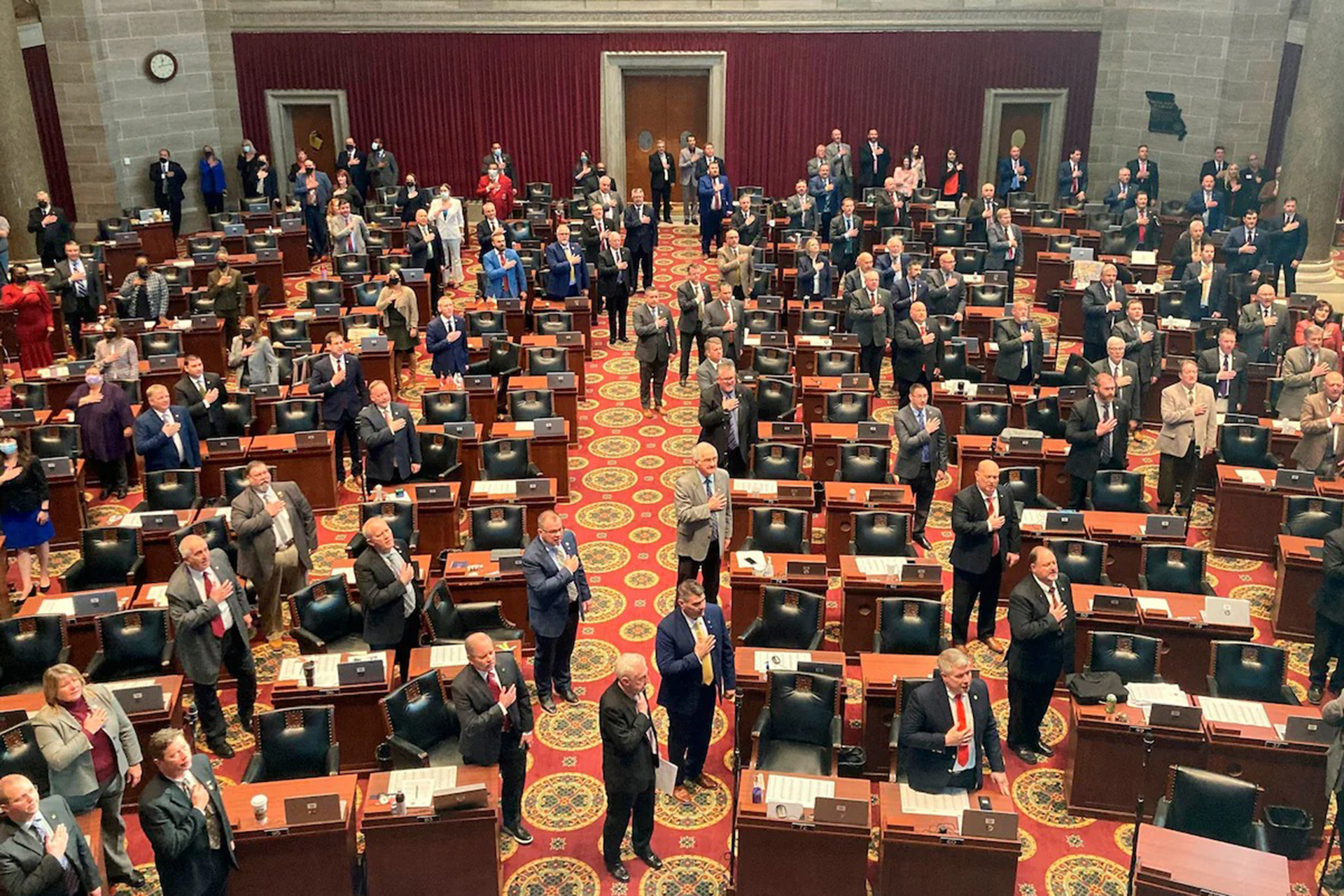The Missouri State House of Representatives in the United States of America imposed new dress codes that oblige women in the House to cover their arms with long-sleeved clothes "to preserve the etiquette of propriety."
And the British newspaper “The Telegraph” said, in an article it published last Monday, that women have become obligated to wear jackets, coats, or jackets, after the vote ended with a score of 105 votes to 51, in favor of the new amendment within the Republican-led House, which excels The number of men over women within the council is approximately 3 to 1.
Before the new rules were passed, women were required to wear "dresses, skirts and formal trousers with a jacket or coat, plus dress shoes or winter boots (boots)".
But they were not required to wear an extra layer of clothing.
Commenting on this, Republican Representative Ann Kelly, who introduced the new amendment, said that the purpose is to "maintain a formal and professional atmosphere" and to simulate the dress code for men, who are obligated to wear a jacket, shirt and tie.
According to the same newspaper, most of the men in the council were approving of the new dress code.
On the other hand, Democratic Representative Peter Meredith refused to vote on the decision;
Because he "did not dare to specify" what clothes are appropriate or inappropriate for women to wear, according to his point of view.
A number of women on the council also said that this was a "distraction" from the real problems.
Rules and questions
In this context, Democratic Representative Ashley Onn said that she witnessed a lot of lack of decency inside the parliament over the two years she spent in it, but she made it clear that the lack of decency was not related at any time to someone wearing a jacket or not.
"Do you know how we're going to feel when the men on this council look at our tops to try to decide if they fit or not?" she asked.
It is noteworthy that correspondents and lawmakers in the US Congress were required to wear dresses and shirts with sleeves in order to enter the House of Representatives, until 2017.
But a group of bipartisan lawmakers protested and demanded "their right to bare their arms," prompting then-Chairman Paul Ryan's office to acknowledge that the dress code "stands a bit of an update."
In the view of Virginia Ramseyer Winter, an associate professor at the University of Missouri College of Health Professions, legislators should not have discussed it in the first place.
Because he placed undue emphasis on women's appearance rather than politics.
"I think the decision reinforces the notion that we value women for their looks rather than more important things like their intelligence and contributions," she added.

